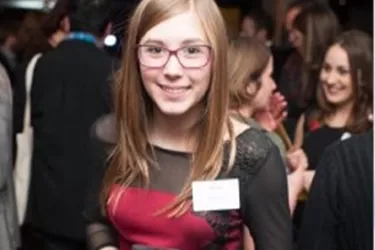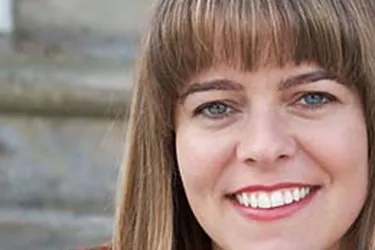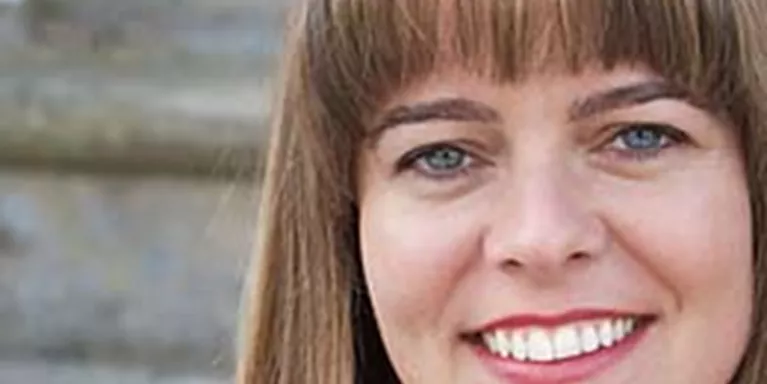How we went about portraying mental health in 'Flowers'
Writer of the acclaimed dark comedy 'Flowers', Will Sharpe, blogs about the importance of accurate portrayals of mental health on screen, and how Mind supported the development of the second series.
Will is an actor and writer from London, whose work was nominated for a Mind Media Award in 2016.
Follow Will on Twitter at @FlowersOnTVFlowersOnTV
‘Flowers’ is a show about family and the idea of home, but it is also a show about mental illness - the way it can impact on your life and the lives of those around you. Where the first series looked at depression, the second series focusses more on the subject of bipolar. From the beginning, we did our very best to be as sensitive and accurate as we possibly could in portraying mental illness and to deal with the subject in a helpful and responsible way.
As somebody with type two bipolar, I’d been aware of Mind and the great work that they do for many years, but our relationship with them on ‘Flowers’ began at the Mind Media Awards in 2016. They were pleased about how we dealt with the subject of depression in the first series and off the back of those conversations, we started a dialogue that continued throughout the making of the second series.
"As storytellers I feel we have a responsibility not to over-simplify."
I think that television and film - any kind of fiction really - can affect the way we see the world. We are all impressionable. I know I certainly am. So I suppose I feel that it’s important for fiction to reflect the complexity of real life and to paint a fully nuanced picture, whatever the world is that the story is set in, and whatever the tone. I guess, to put it another way, as storytellers I feel we have a responsibility not to over-simplify.
The people at Mind were thoughtful, compassionate and really considerate about what it was that we were trying to do and say. I really believe that working with Mind on a show that deals with mental illness - whether in depth or as a side story or just fleetingly - will improve the work.
We had the scripts read by someone at Mind who has a bipolar diagnosis, so to hear that she really related to the scripts, its portrayal of hypomania and the lows that often follow, was a huge reassurance. They also ran an extremely helpful workshop with Sophia (who plays Amy, the character with type two bipolar) and Harriet (who plays Hylda, Amy’s girlfriend), along with the script producer and script editor talking through symptoms and how they might manifest themselves. They introduced them to somebody who had experienced hypomania and depression, who very helpfully talked through her own experiences, so that they could get a broader sense of how hypomania can feel from somebody who had been there first hand and who wasn’t as close to the material as I was.

The other thing to mention is that, of course, they had a sense of humour. With 'Flowers', we never laugh at the characters, or make fun of how they’re feeling. But while it goes to quite challenging and emotional territory, at other times it’s just trying to make you laugh. It’s quite happy to be just be silly. Perhaps it goes without saying, but Mind got that. They never tried to beat the humour out of the show. In fact, they would often pick out jokes that they particularly liked. One example was when Maurice (Julian Barratt’s character) quite grandly announces that he is suffering from “major depressive disorder” to which Deborah (Olivia Colman) responds: “Just call it depression, Maurice, it’s not a Nobel Prize.”
In the very first treatment for ‘Flowers’, I wrote that my intention was to make "an uplifting comedy about melancholy and those rare moments of colour that make life worth living." If I could change one word, I would change "colour" to "peace". As the second series explores through its dealings with hypomania and, as I have learned over time through my relationship with type two bipolar, there is such a thing as too much colour. Peace, I think, is more valuable.
"I think real hope can transcend what’s difficult and challenging about this world."
But I also want the audience to get a sense of how helpless you can feel in the face of mental illness, of how relentless and confusing it can be, and how painful it is to love somebody who is suffering. Because, for me, the only way to feel truly hopeful is to look at that stuff head on and still feel like there’s a way through. I think real hope can transcend what’s difficult and challenging about this world. I don’t believe that having a mental illness rules out a joyful and fulfilling life and I don’t believe it rules out laughter. I think laughter is an important way to make ourselves feel better and that it can be an invaluable tool when trying to work through and understand the heaviest subjects.
Even at its darkest, there is hope in ‘Flowers’. My experience of mental illness is that it can sell you an overpoweringly compelling - and fictional - narrative about your life, to which it can eventually start to feel like there is only one possible conclusion. The final episode of the second series of Flowers, I hope, challenges that and offers, if you like, a break in the narrative. As I wrote the second series, I found myself overcome with a feeling that it was unfair that I could engineer a happy ending for these characters simply by writing it down, because I don't feel like it's anywhere near that simple in real life. But, at the same time, I wanted to leave a door open to hope. Because I do believe that, even in our darkest hours, even if it's buried deep in the recesses of our consciousness, there are always some fragments of hope. And those, surely, are the most valuable pieces of ourselves.

Information and support
When you’re living with a mental health problem, or supporting someone who is, having access to the right information - about a condition, treatment options, or practical issues - is vital. Visit our information pages to find out more.
Share your story with others
Blogs and stories can show that people with mental health problems are cared about, understood and listened to. We can use it to challenge the status quo and change attitudes.

















